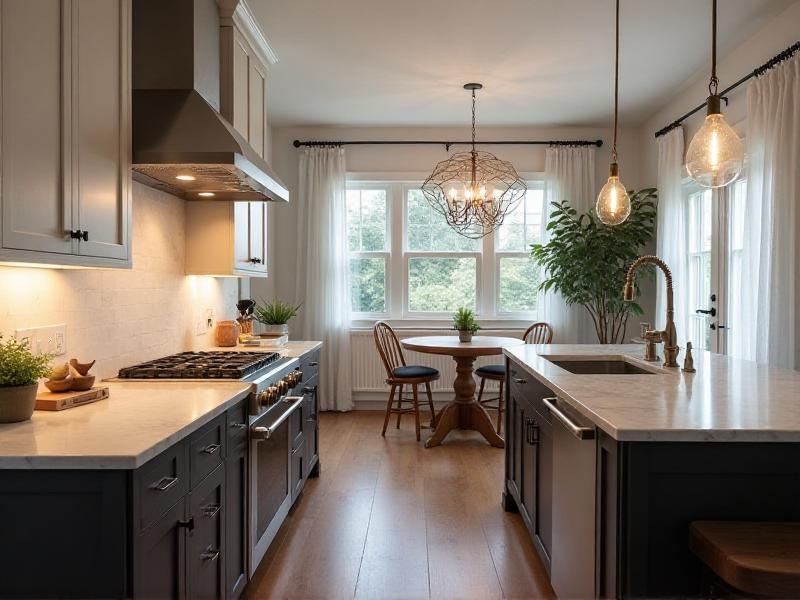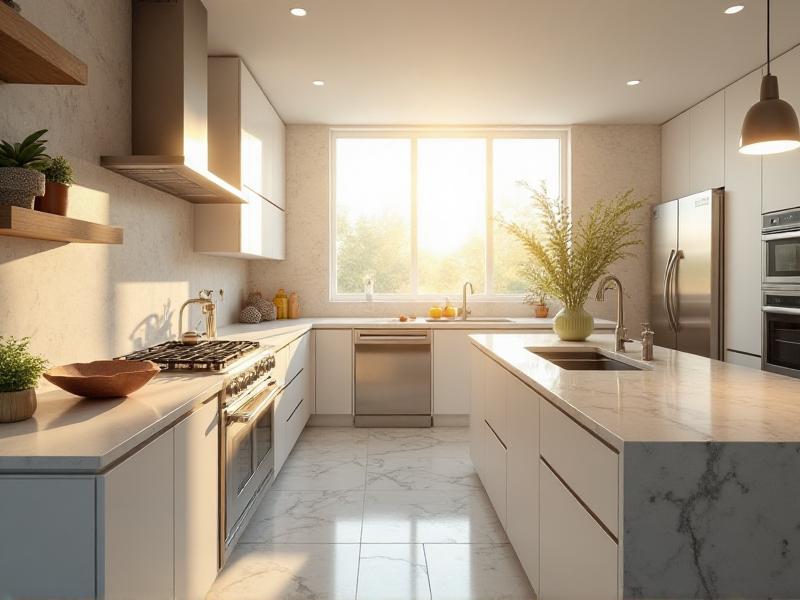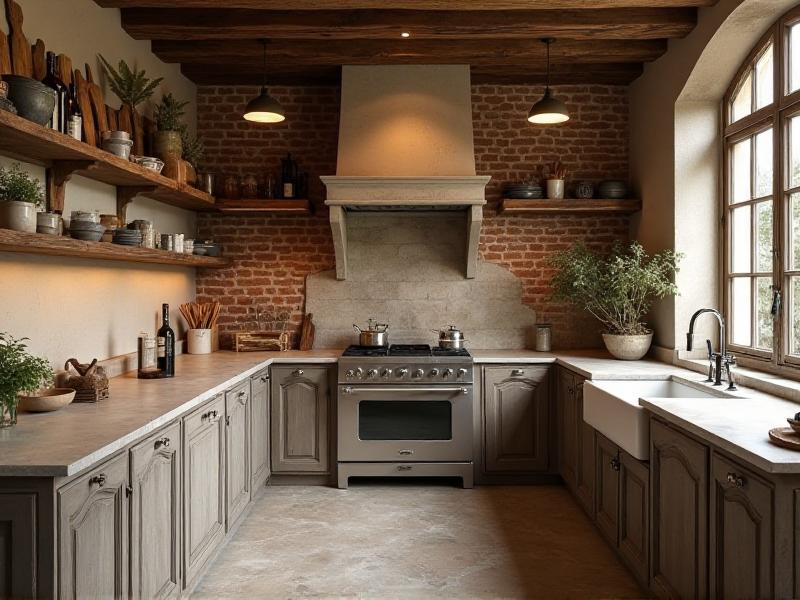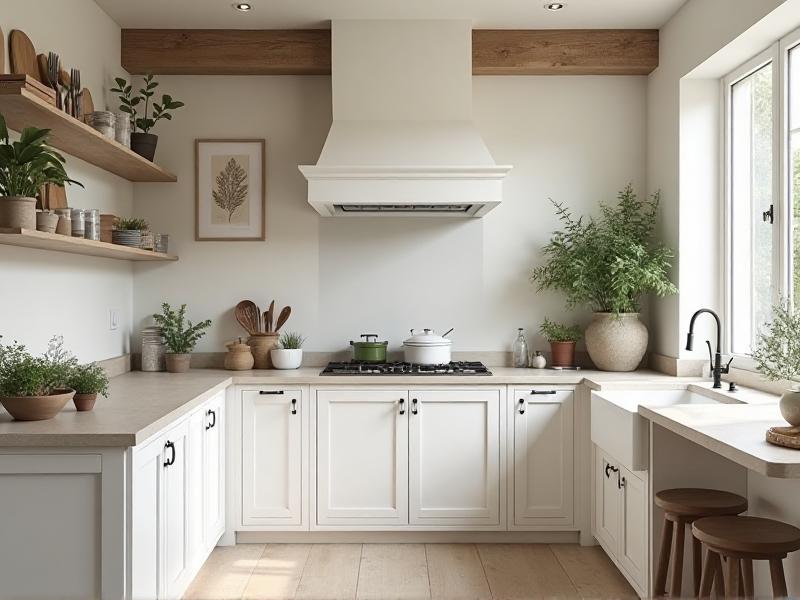Eco-Friendly Kitchen Remodeling: Sustainable Choices for Your Home
Why Eco-Friendly Kitchen Remodeling Matters

In today's world, sustainability is no longer just a buzzword—it's a necessity. The kitchen, often considered the heart of the home, is a prime area where eco-friendly choices can make a significant impact. From reducing energy consumption to minimizing waste, an eco-friendly kitchen remodel can contribute to a healthier planet and a more efficient home. By opting for sustainable materials, energy-efficient appliances, and mindful design, you can create a space that aligns with your values and reduces your environmental footprint.
Choosing Sustainable Materials for Countertops and Cabinets
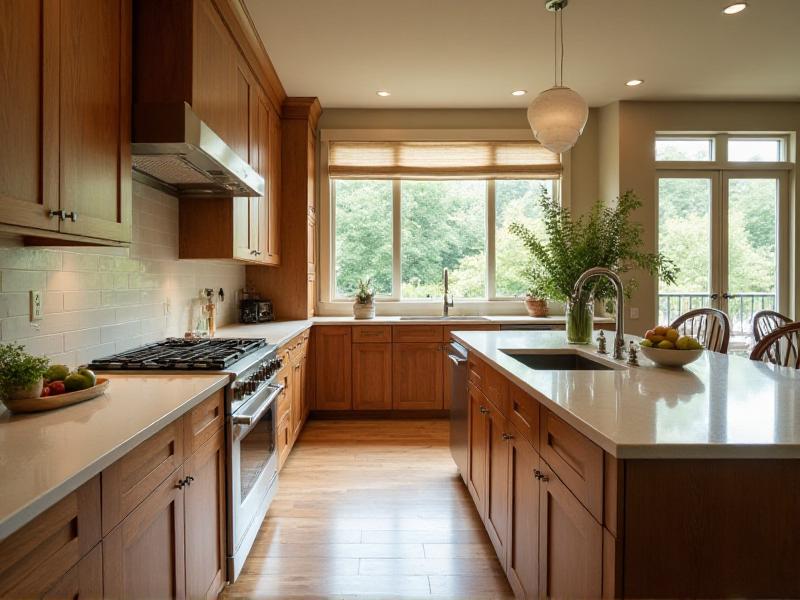
When it comes to eco-friendly kitchen remodeling, the materials you choose play a crucial role. Opt for countertops made from recycled glass, reclaimed wood, or sustainable stone like quartz. For cabinets, consider FSC-certified wood or bamboo, which are renewable and durable. These materials not only look stunning but also reduce the demand for virgin resources. Additionally, low-VOC (volatile organic compound) finishes and adhesives can improve indoor air quality, making your kitchen a healthier space for your family.
Energy-Efficient Appliances: A Smart Investment
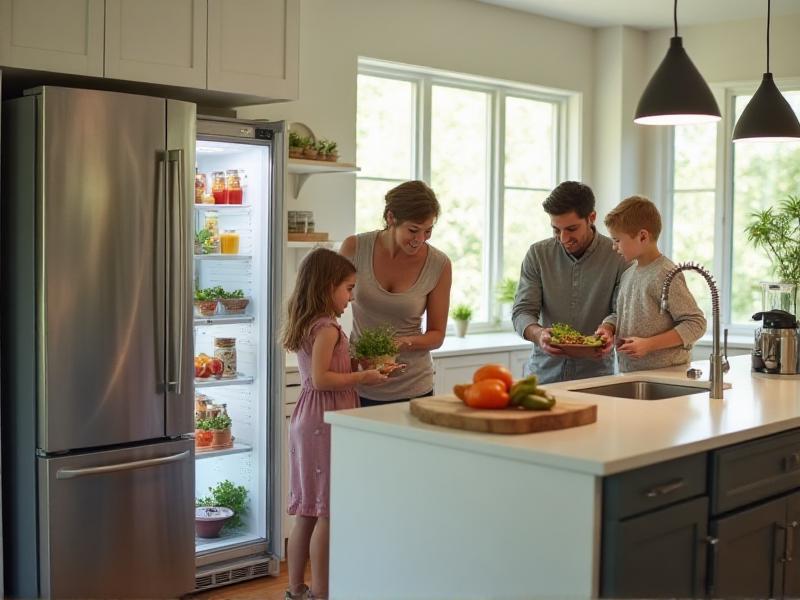
Upgrading to energy-efficient appliances is one of the most impactful changes you can make during a kitchen remodel. Look for products with the ENERGY STAR label, which indicates they meet strict energy efficiency guidelines set by the EPA. From refrigerators to dishwashers, these appliances use less energy and water, saving you money on utility bills while reducing your carbon footprint. Modern designs also ensure that eco-friendly doesn't mean compromising on style or functionality.
Water-Saving Fixtures for a Greener Kitchen
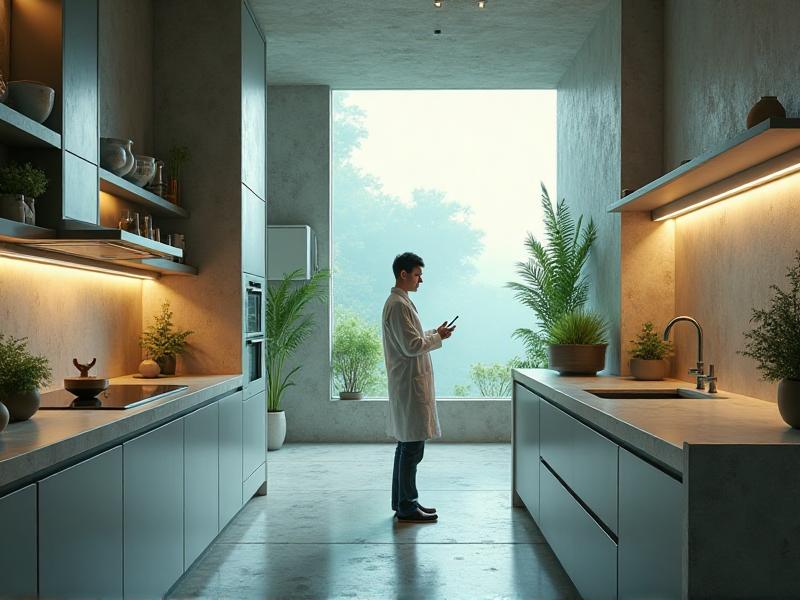
Water conservation is another critical aspect of eco-friendly kitchen remodeling. Install low-flow faucets and aerators to reduce water usage without sacrificing performance. Consider a tankless water heater, which provides hot water on demand and eliminates the energy waste associated with traditional water heaters. These small changes can add up to significant savings over time, both for your wallet and the environment.
Lighting: Bright Ideas for Sustainability
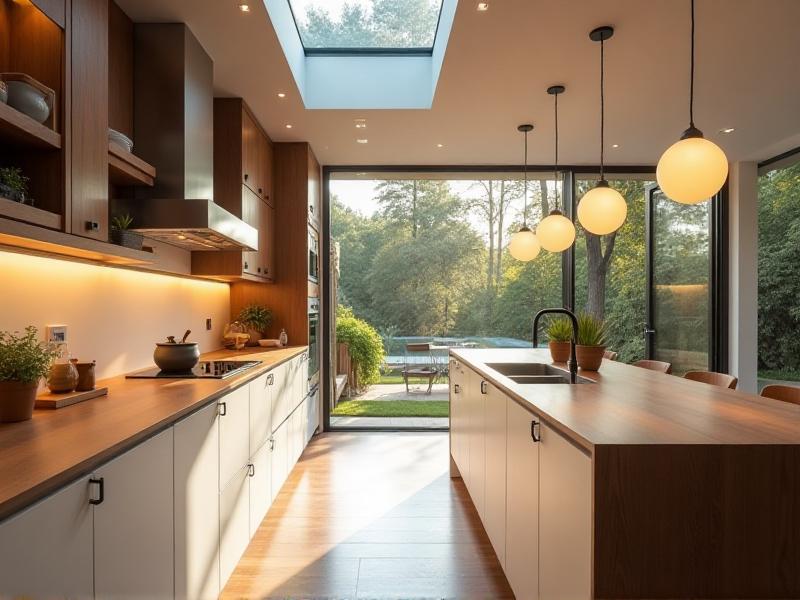
Lighting is often overlooked in kitchen remodels, but it’s an area where eco-friendly choices can shine—literally. Replace outdated incandescent bulbs with LED or CFL options, which use up to 80% less energy and last significantly longer. Incorporate natural light by adding skylights or larger windows, reducing the need for artificial lighting during the day. Smart lighting systems can also help you control energy usage more effectively, ensuring lights are only on when needed.
Waste Management: Composting and Recycling Solutions
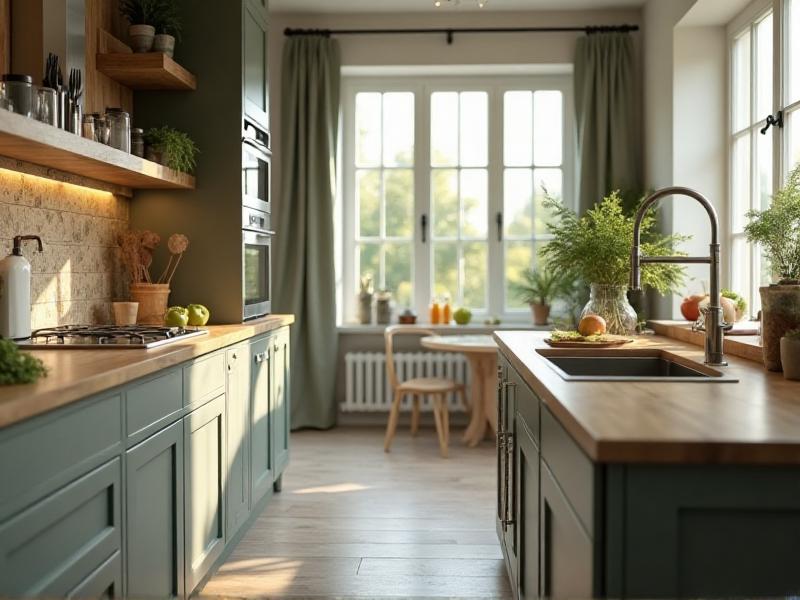
An eco-friendly kitchen remodel isn’t complete without addressing waste management. Incorporate built-in recycling and composting bins into your design to make sorting waste effortless. Composting food scraps reduces landfill waste and creates nutrient-rich soil for gardening. Additionally, consider a garbage disposal unit that can handle food waste efficiently, further minimizing your environmental impact.
Flooring Options That Are Kind to the Planet
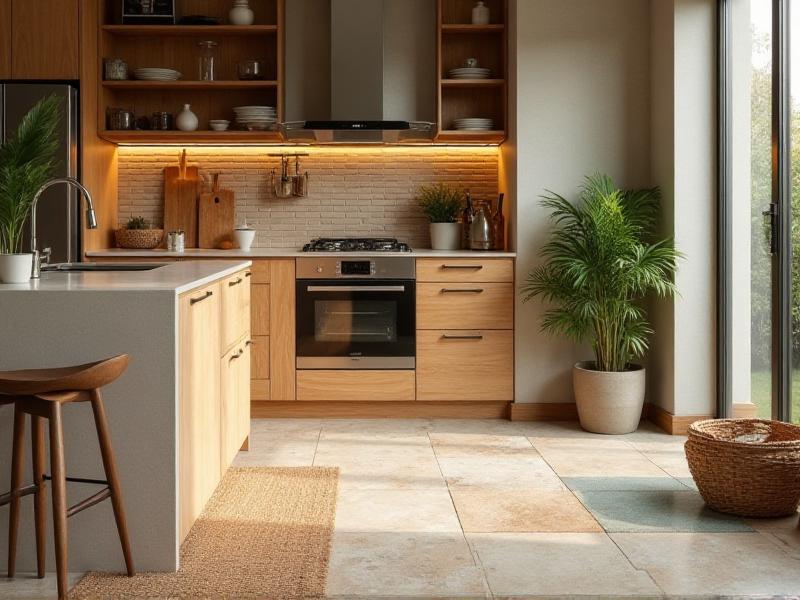
Flooring is another area where sustainable choices can make a big difference. Cork, bamboo, and reclaimed wood are excellent options for eco-friendly kitchen floors. These materials are renewable, durable, and add a unique aesthetic to your space. For a more modern look, consider recycled tile or linoleum made from natural materials. These choices not only reduce environmental impact but also create a warm and inviting atmosphere in your kitchen.
Ventilation: Keeping the Air Clean and Fresh

Proper ventilation is essential for maintaining good air quality in your kitchen. Choose energy-efficient range hoods that effectively remove smoke, grease, and odors while using less power. Opt for models with reusable filters to minimize waste. Good ventilation not only enhances comfort but also ensures that your kitchen remains a healthy environment for cooking and gathering.
Smart Technology for an Eco-Friendly Kitchen
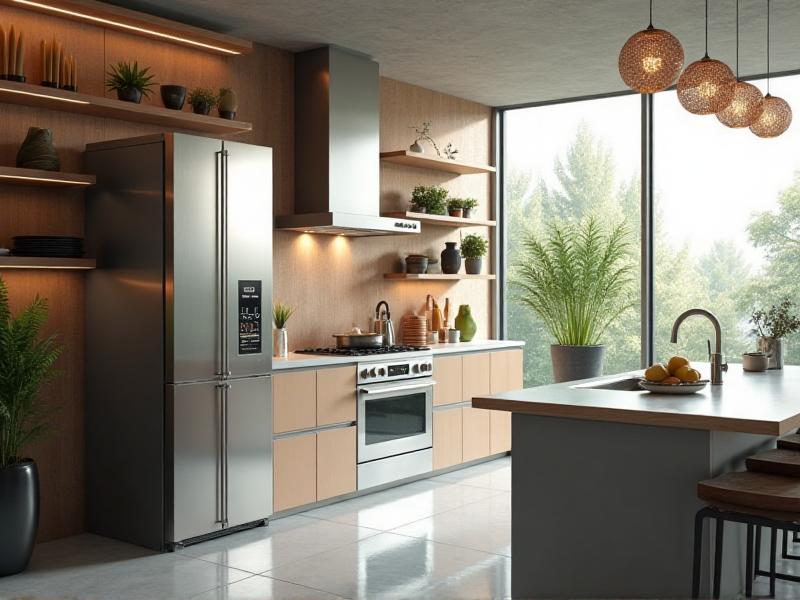
Integrating smart technology into your kitchen can take sustainability to the next level. Smart thermostats, faucets, and appliances allow you to monitor and control energy and water usage with ease. For example, a smart refrigerator can alert you to food expiration dates, reducing food waste. These innovations not only make your kitchen more efficient but also align with a sustainable lifestyle.
Key Takeaways
- Eco-friendly kitchen remodeling reduces environmental impact and enhances home efficiency.
- Sustainable materials, energy-efficient appliances, and water-saving fixtures are key components.
- Smart technology and proper waste management further contribute to a greener kitchen.
Frequently Asked Questions
What are the most sustainable materials for kitchen countertops?
Recycled glass, reclaimed wood, and quartz are excellent sustainable options for countertops.
How can I reduce energy usage in my kitchen?
Upgrade to ENERGY STAR appliances, use LED lighting, and incorporate smart technology to monitor energy consumption.
Are eco-friendly kitchen remodels more expensive?
While some sustainable materials and appliances may have a higher upfront cost, they often save money in the long run through reduced energy and water bills.
